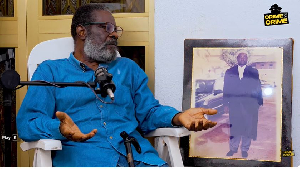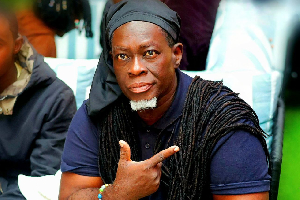Governor of the Bank of Ghana (BoG), Dr Abdul-Nashiru Issahaku has acknowledged the slow growth of the Ghanaian economy, attributing it to external factors and tight credit conditions.
According to him “growth has remained subdued for the most part of 2016 largely due to tight credit conditions and the downturn in commodity prices.”
The Governor who on Monday announced a 0.5 per cent reduction in the main policy rate to 25.5 per cent after keeping it at 26 per cent for 10 months indicated that the outlook for inflation was broadly positive and reflected in its continued decline and stability in the forex market , however “growth conditions remain weak and below trends."
This admission from the BoG confirms an earlier forecast from the International Monetary Fund (IMF) which said Ghana’s economy will grow by 3.3 per cent this year.
The 3.3 per cent growth rate contained in a report posted on the IMF website is the slowest since 1994.
Government has been denying that the country’s economy is not growing as it continues to tout its achievements and makes a case for re-election in December this year.
The President, Mr John Dramani Mahama has been defending his government’s management of the Ghanaian economy, claiming that the nation’s economy has become resilient under his presidency.
He has urged Ghanaians to ignore what he described as “propaganda” by his critics that the economy is in crisis.
The President’s comments have been prompted by increasing concerns from economists as well as opposition political parties of his economic management record, especially Ghana’s increasing national debt which they have warned could sink the economy.
Indeed, government’s own letter of intent to the IMF dated September 16 2016 referred to slow economic growth and gross financing needs as having continued into 2016 from 2015.
“Economic conditions have been difficult, owing to slow economic growth and tight financing conditions. Weak commodity prices, a shortfall in cocoa production and unreliable electricity supply contributed to the 2015 economic slowdown,” the letter said.
Expressing his disappointment over what he described as a marginal reduction in the BoG’s main policy rate, Head of Finance at the University of Ghana Business School, Professor Godfred Bokpin said growth was being sacrificed for stability.
“What we are doing is to sacrifice the long term growth potential of the economy to meet short-term price stability objectives; we are squeezing credit and making it difficult for the private sector to grow,” he explained.
According to Prof Bokpin, even though managers of the economy may have succeeded in achieving price stability in the short-term it will be at the expense of long term growth of the economy.
Economist and lecturer, Dr Eric Osei Assibey of the Department of Economics, University of Ghana also stressed the need for the central bank to drastically reduce the policy rate and refrain from the squeezing private sector credit.
“If you look at how inflation has reduced significantly and the fact that growth drivers remain weak, you need to device a policy that will stimulate growth to help the domestic economy to grow,” he said.
Head of Africa Research at Standard Chartered bank Razia Khan, said the rate cut was smaller than she had expected and could reflect concerns at the central bank that inflation has not fallen as rapidly as it had hoped.
"The imminent improvement in year-on-year inflation may provide the Bank with stronger justification to ease more aggressively next year," Khan said.
Business News of Thursday, 24 November 2016
Source: thefinderonline.com













